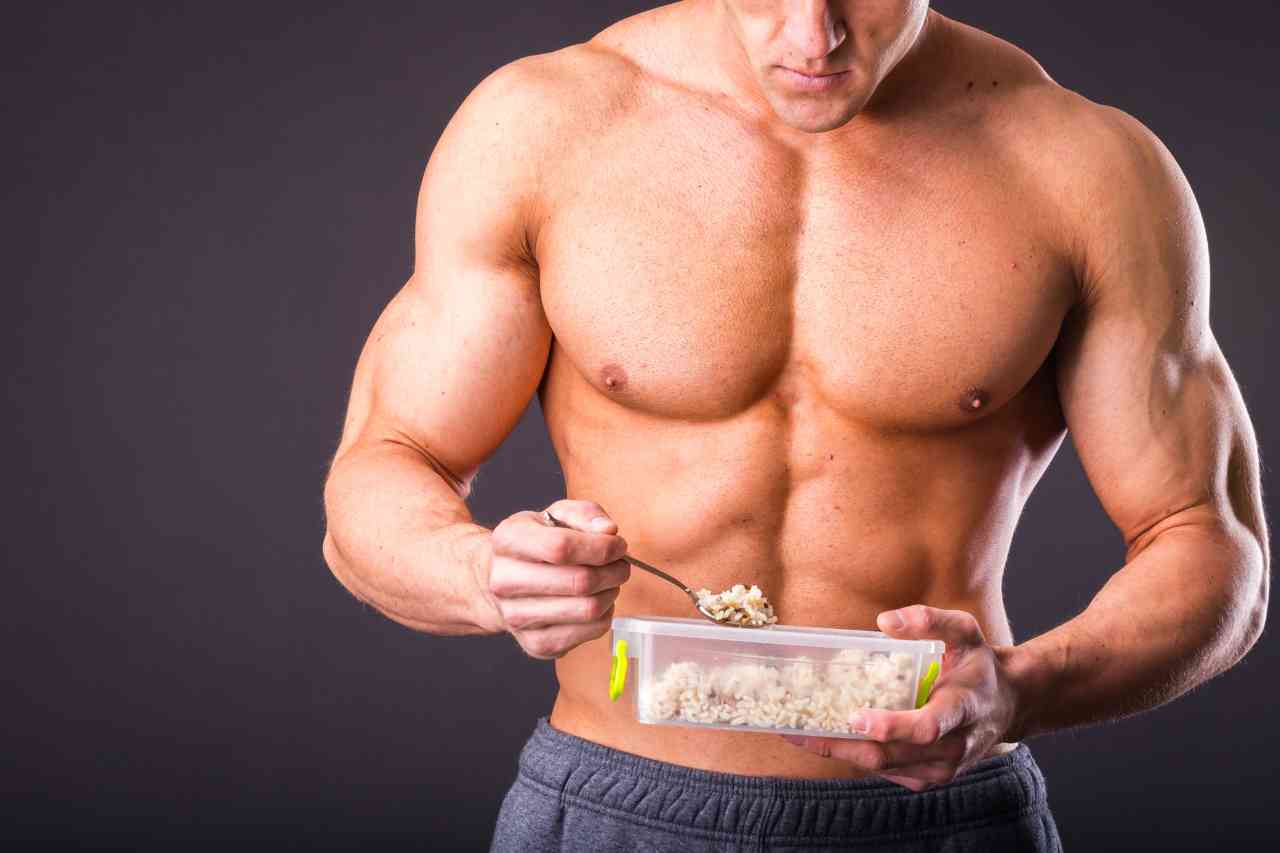Get In Touch
Info@fitfaysal.com

“Even a single training session at the gym can reduce muscle glycogen levels anywhere from 24 to 40%,” according to research.
Carbohydrates are stored in the muscles as glycogen, which serves as fuel for the muscles.
So, an average of a 30% reduction in glycogen after each workout is one indicator as to why carbohydrates may be needed for muscle growth.
However, we can’t stop there, as this post aims to argue every side of the spectrum on whether you truly need carbohydrates for muscle growth (or not).
This post aims to answer the following questions: What do carbs do for the muscle? Can you build muscle with little to no carbs? And would you build more muscle with carbs or without? If any of these questions interest you, then you may want to stick around.
Key Takeaway: Nearly every study has said you don’t need carbs for muscle gains. Carbohydrate’s main purpose in muscle gain is to provide energy; however, your body can still get energy from protein and fats. But the energy you get from consuming carbs is unmatched.
Read on for a full breakdown.

Nutrition plays a supportive role in the muscle-building process. It provides a more anabolic environment to build muscle, which results in a faster rate of muscle growth over time if the right nutrients are consumed.
Resistance training stimulates and causes muscle growth, while nutrition supports and enhances it.
Without nutrition, you won’t build muscle, and without taking the right nutrients, you won’t build optimal muscle.
Nutrition entails the 3 macronutrients (protein, carbs, and fats) and other micronutrients.
They each have their place in muscle development so you wouldn’t have any advantage in building muscle by cutting any of them out.
You may just set yourself up to leave gains on the table.
Related: 9 Nutrition Mistakes Lifters Are Making Right Now
Carbohydrates tend to get some hate in the fitness industry.
Many people are switching to a more protein- and fat-heavy diet and villainizing carbohydrates as the “enemy,” the cause of weight gain.
If you are trying to lose fat, then that may be true to an extent; however, calling them the enemy is a pretty long stretch.
After the rise of diets like keto and carnivore diets, which focus hugely on protein, people reported that they still grew muscle on these diets, which started to question carbohydrates’ role in muscle gain.
Carbohydrates have always had their place throughout every era of fitness.
They digest quickly, allowing you to eat more food, which is something you want if you’re trying to gain mass and muscle.
It would be very hard for a person to bulk up without carbs, as proteins and fats can be very filling.
Carbs have two major impacts on muscle growth:
Let’s touch on the energy part; this has been a major argument as to why carbs are needed for muscle size.
However, studies have come out that show that the body can still get energy without directly taking carbs.
Ketones are an alternative energy source produced in the liver, either from stored fats or the fat we consume.
Fats and ketones can provide up to 90% of the body’s energy needs; the other 10% comes from glucose.
Where will you get glucose if you’re not consuming carbohydrates?
Well, your body creates glucose through a process called gluconeogenesis, which is when the body produces its glucose.
Have you ever heard of a person with a carbohydrate deficiency?
Yeah, me neither.
To NEED carbs would mean that it is necessary and that it is required for muscle gains because it is essential.
Although I love carbs, and they will always be a part of my diet, I cannot be biased.
Nearly every study has said you don’t need carbs for muscle gains.
Carbs’ main purpose in muscle gain is to provide energy; however, your body can still get energy from protein and fats. The body also creates some amounts of glucose.
Will this energy be enough for lifting heavy and pushing through workouts?
No, the energy you get from carbs is unmatched.
Are carbs necessary for building muscle?
They aren’t, but they sure will make muscle gain a lot easier.
Are you better off without carbs when building muscle?
You aren’t. You’re worse off without them.
When you cut out carbs, you start to lose water that has been retained in the muscle, which makes them look fuller.
You may start to feel unmotivated and lack the energy to work out, especially if you’re doing resistance training.
The only scenario where a lack of carbs would actually help you is if you were going on a diet.
Check out: How to Build THE Aesthetic Masculine Physique (Guide)
Here are some frequently brought-up reasons why people propose that carbohydrates are required for muscle growth.
“Carbohydrates are stored in your body intramuscularly as the energy required to lift heavy weights and push through your workouts.”
This is true; however, the body can still produce energy through other sources. But they won’t energize you the same way digesting carbs would.
“Even a single training session at the gym can reduce muscle glycogen levels anywhere from 24 to 40%.”
This statement holds ground; however, your body will gradually restore glycogen levels. Of course, eating carbs would accelerate this process.
Studies show that you can build strength and muscle without carbs, and on the other hand, studies also say that if you eat carbs, you’ll build more muscle and strength.
So, it is clear that, although carbohydrates aren’t necessary for gaining muscle mass, you only stand to lose if you take them out of your diet.
Why not go for a balanced nutritional diet?
A balanced nutritional diet contains ratios of proteins, fats, and carbohydrates. If you want to maximize muscle gains, eating a ratio of these macronutrients is essential.
These ratios depend on the type of diet you choose.
However, a good ratio if you still want to go on a low-carb diet is- 50% protein, 20% fat, and 30% carbs.
If you eat carbohydrates, you will perform better, you’ll feel stronger, and, as a result, you will build more muscle.
But at the end of the day, choosing a diet that makes you feel the healthiest will always be the best choice.